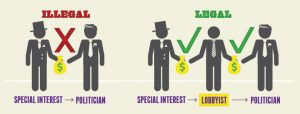(Akiit.com) The House of Representatives’ Democrat majority FY2020 budget includes refunding the Congressional Office of Technology Assessment (OTA), closed in 1995, perhaps acknowledgement Congress doesn’t understand the businesses they hope to regulate. In a sense, the Democrat House would rather cover for their ignorance of the technology/media industry through a newly resurrected younger OTA staff with taxpayers footing the bill.
Wrong!
Our Constitution, not a bureaucracy, successfully guided legislators through the industrial revolution, deployment of electrical and communication networks, overseeing automobile and aircraft industries, harnessing nuclear energy, medical breakthroughs, and the dawn of the space and computer age. Rather than inject themselves into the marketplace or the Executive Branch’s authority, Congress generally crafted common-sense, equitable laws that stand the test of time.
Advocates calling for “unbiased expert advice” to assist Congress are potential beneficiaries of government contracts for studies, analyses, and white papers on topics chosen by those same tech-ignorant representatives and their staffers.
New laws governing technology typically aren’t needed. Existing laws must be enforced in order to rein in wrongdoing. State Attorneys General are finally applying anti-trust laws against Facebook and Google, and senators are seeking clarification of the 1996 Communications Decency Act’s Section 230. Both the FCC and FTC currently require consumers specifically to opt-in to additional features and services, rather than automatic settings allowing Big Tech free rein with personal data.
Already under the Legislative Branch is the newly funded GAO Science, Technology Assessment, and Analytics (STAA) team. Academic studies, conferences, private research and development abound in technology. The Congressional Research Service (CRS) has not recommended OTA as an ancillary office — another sign it is unnecessary.
Most elected officials simply don’t grasp what drives investment, markets, and business, as painfully exhibited through the calculation of the Green New Deal’s true costs and logistical realities of similar command-and-control socialist legislation. Yet nowhere is there a call to provide a basic business grounding to the lawyers, educators, and career public officials who comprise 69% of today’s Congress.
The original OTA was formed in 1972 as a result of distrust of President Nixon’s science advisors, criticism of a powerful military-industrial complex, and launch of the environmental movement. Congress received supposedly unbiased, scientific reports for two decades, including all the ways mining destroyed the nation.
That taxpayer-funded expertise became the foundation of the “settled science” argument of climate change, despite American industry cleaning up its lands, air and water to unprecedented levels. The Democrat majority in Congress paid for this advice, logically took it to heart, and predictably extended their anti-capitalism agenda around the globe. It’s no wonder that they defend that science so vociferously.
Technological progress exploded in the last 24 years without OTA expertise guiding it. Which begs the question: is the Democrat majority in the House seeking fundraising from the wealthy tech elite to perpetuate a new “settled science” of a tech-centric, big government agenda?
The obvious downside, as Richard W. Roberts, Director, National Bureau of Standards, noted in the first OTA report in 1974, Requirements for Fulfilling a National Materials Policy: “Over all, good advice has been generated, but we’ve been guilty of a major failing: We have not acted on that advice.”
What a prescient comment. Ignored in that report was a recommendation to develop the nation’s domestic mineral resources in anticipation of emerging global competition — especially with China.
Rather than re-fund the OTA, Congress might do better to acknowledge their ignorance of critical minerals and instead resurrect the once venerable Bureau of Mines, simultaneously defunded in 1995. Such a move could kick-start science-based assessments of the languishing mineral wealth under our feet to efficiently and effectively support the private sector. Creating a central clearinghouse of mineral expertise through a Bureau of Mines that serves as a resource to our productive businesses and workers is better than serving a biased and increasingly uncivil Congress.
Unlike the independently thriving technology industry, the domestic mining industry has been debilitated through unfair global trade policies, frivolous environmental lawsuits, and a basic ignorance of what metals mean to 21st century manufactured products and lifeline services. American universities have few degreed programs nor basic research in materials science, the backbone of new technologies. Scarce lobbyists and small trade organizations are on life-support trying to make the simple point that our economic strength and sustainable energy future require minerals and mining.
Entrepreneurs and multi-national corporations comprise both the fast-moving technology and the slow-moving mining industries. All seek equality under the law to run successful businesses and contribute to our phenomenal standard of living.
Laws which provide a predictable structure for innovation and investment is what works, not legislators needing surety of each and every detail.
Columnist; Ann Bridges
Official website; https://twitter.com/abridgesauthor









Leave a Reply